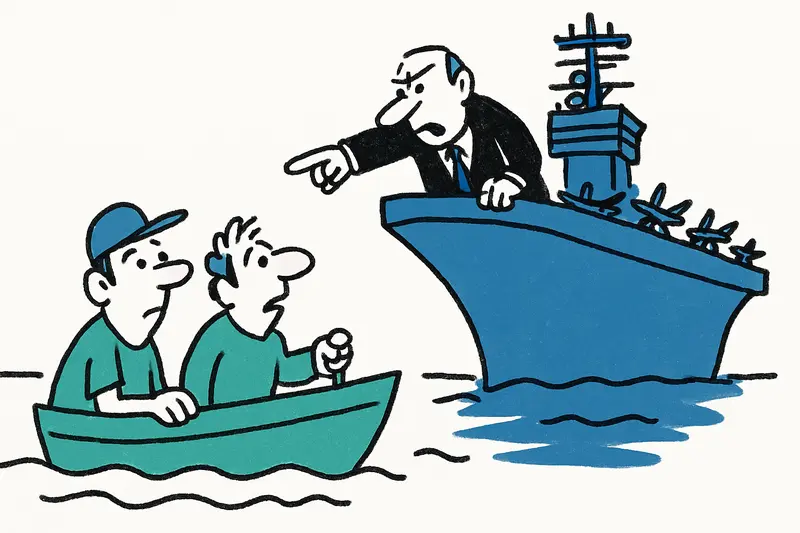The USS Gerald R. Ford lies in Palma Bay. The carrier warned civilian ships to vacate the restricted area — sparking debate and crowded cafés on the island.
Alarm in the Bay: Carrier Calls on Boats to Keep Distance
\nOn Sunday afternoon, around 1:30 PM, residents along Passeig del Born and captains in the harbor heard the same announcement: a radio message from the largest US aircraft carrier in the Bay of Palma. "Leave the area—or defensive measures will follow," according to several observers on site. For many, it was unusual: military language mixed with the sound of seagulls and coffee cups.
\nBetween Deterrence and Nervousness
\nThe USS Gerald R. Ford has been at anchor in the bay for several days and is expected to remain for several more weeks. The ship is enormous—over 300 meters long, with complex technology onboard. Anyone who ventured too close to the restricted zone heard clearly that it could be dangerous.
\nHarbor masters and local sailors confirmed that there were several radio transmissions, also broadcast in English.
\nIn Palma's street cafés, some are rubbing their hands: 4,500 Marines and crew mean revenue for restaurants and taxi drivers. Other residents react with unease. "We’d like to go to Cala by boat tomorrow, without anyone suddenly going to half-mast," said a father from Portixol who asked not to be named. Protest signs were seen in several streets; on Passeig Mallorca, a door displayed a clear "No Army" poster.
\nTechnology, Presence, Politics
\nThe carrier carries modern aircraft, onboard power plants and launch technology that distinguishes it from older ships. This is not show—it is primarily a logistical and military platform. For political observers, the visit is a visible sign of international presence: deterrence, signaling, and talking points in the city council.
\nWhat does this mean concretely? For recreational skippers, tight rules now apply: keep distance, follow radio instructions, respect potential safety zones. Those who do not risk not only fines, but — as the warning indicated — in extreme cases also tougher measures.
\nHow the island lives with it
\nDuring the day you meet military personnel in harbor cafés; in the evenings some streets are full of heated discussions about security and sovereignty. A taxi driver calculated that a normal evening with several US guests can quickly bring in an extra 300 to 500 euros.
\nA tavern keeper at the Olivar Market dryly said: "Money is money, but the mood doesn't get better because of it."
\nFor the days ahead, the situation remains tense but calm. The Port and Security Authority emphasized that it is in contact with the American authorities. If you own a boat: best to call early, check the radio channel, and not rely on your own sense of adventure.
\nLocal voices, brief observations, and a bit of harbor gossip — this is how Palma feels right now as a very large ship circles around.
Similar News

Watch theft in Palma: Escape to Barcelona ends at the airport
A tourist in Palma was the victim of a brutal robbery. The suspect tried to flee but was arrested at Barcelona airport. ...

Severe Weather in Mallorca: Ongoing Delays at Palma Airport Cause Frustration
Due to heavy rain and thunderstorms, there are still significant delays at Palma Airport. Travelers from Germany should ...

Northern Lights over Mallorca: When and Where You Can See the Aurora Borealis
Between October 20 and 29, the Northern Lights could be visible over Mallorca. Who wouldn’t want to go to Scandinavia? A...

Costitx: Flowers, Stones, and a Look at the Starry Sky
Small village, big personality: Costitx blends blooming streets, ancient excavations, and an observatory - a day-trip ti...

Die Zeit auf Mallorca: Warum die Uhren hier anders ticken
Auf Mallorca läuft die Uhr offiziell anders als die Sonne — ein Erbe aus den 1940er-Jahren, das bis heute unseren Alltag...
